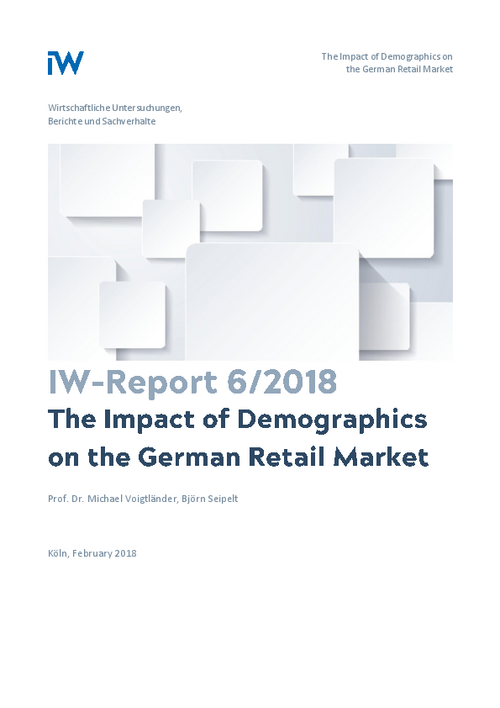In recent years, net migration reached a new peak in Germany. Between 2011 and 2015, net migration amounted to more than 2.7 million people. This influx of people has had an impact on society, on the economy in general, and on most businesses.

The Impact of Demographics on the German Retail Market
IW-Report

In recent years, net migration reached a new peak in Germany. Between 2011 and 2015, net migration amounted to more than 2.7 million people. This influx of people has had an impact on society, on the economy in general, and on most businesses.
In this study, the impact on retail property markets is analysed. In order to do so, the net migration to cities in Germany is transformed into a retail consumption potential. By combining statistics on migration, the socio-economic panel and the micro-census, increases of retail consumption for all cities with more than 100,000 inhabitants could be derived.
As it turns out, all cities benefitted from migration. However, besides the biggest cities such as Munich, Berlin or Frankfurt, mid-size cities like Trier, Potsdam or Fürth also gained considerably. Naturally, in this study, only a consumption potential could be derived, since purchases could also be made online, for example. Nonetheless, most goods were purchased locally, thus significantly boosting the attractiveness of retail properties. Given the results of the study, investors are well advised to broaden their investment scope to include cities such as Fürth, Trier or Potsdam, to name but a few.

Michael Voigtländer / Björn Seipelt: The Impact of Demographics on the German Retail Market
IW-Report

Indien: Die Bedeutung der Zuwanderung für die Zukunft des Wirtschaftsstandorts Deutschland
Die Zuwanderung von MINT-Fachkräften hat entscheidende Auswirkungen auf die Innovationsfähigkeit Deutschlands.
IW
Der Innovationsbeitrag von Migration nach Branchen
Migration leistet einen unverzichtbaren Beitrag zur Innovationskraft Deutschlands: Ein Rekordwert von 13 Prozent und damit mehr als jede achte aller hierzulande entwickelten Patentanmeldungen geht inzwischen auf Erfindende mit ausländischen Wurzeln zurück. ...
IW